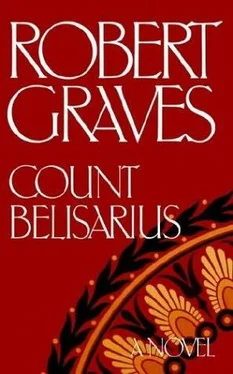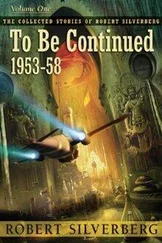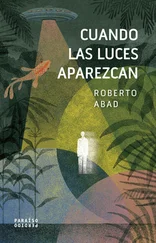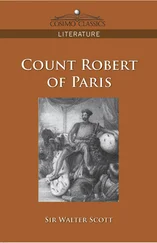Robert Graves - Count Belisarius
Здесь есть возможность читать онлайн «Robert Graves - Count Belisarius» весь текст электронной книги совершенно бесплатно (целиком полную версию без сокращений). В некоторых случаях можно слушать аудио, скачать через торрент в формате fb2 и присутствует краткое содержание. Жанр: Исторические приключения, на английском языке. Описание произведения, (предисловие) а так же отзывы посетителей доступны на портале библиотеки ЛибКат.
- Название:Count Belisarius
- Автор:
- Жанр:
- Год:неизвестен
- ISBN:нет данных
- Рейтинг книги:3 / 5. Голосов: 1
-
Избранное:Добавить в избранное
- Отзывы:
-
Ваша оценка:
- 60
- 1
- 2
- 3
- 4
- 5
Count Belisarius: краткое содержание, описание и аннотация
Предлагаем к чтению аннотацию, описание, краткое содержание или предисловие (зависит от того, что написал сам автор книги «Count Belisarius»). Если вы не нашли необходимую информацию о книге — напишите в комментариях, мы постараемся отыскать её.
Count Belisarius — читать онлайн бесплатно полную книгу (весь текст) целиком
Ниже представлен текст книги, разбитый по страницам. Система сохранения места последней прочитанной страницы, позволяет с удобством читать онлайн бесплатно книгу «Count Belisarius», без необходимости каждый раз заново искать на чём Вы остановились. Поставьте закладку, и сможете в любой момент перейти на страницу, на которой закончили чтение.
Интервал:
Закладка:
The judge could not allow John to be charged with any crime, for fear of antagonizing other powerful land-owners. He also knew that, as a point of honour, John could not acquiesce in the punishment of his servants and fellow-countrymen. Nevertheless, there was a strong case against master and men. So an amicable arrangement was made, by which the men were openly released, but John secretly paid over one-half of his debt, amounting to 200 pounds of gold by weight — more than 14,000 gold pieces — by which means John's honour was saved and the burgesses also were saved from ruin. This Cappadocian John, whose avarice, unneighbourliness, and frequent devotions in church were all remarkable in so young a man, later became Commander of the Imperial Guards and Quartermaster-General, and as such did Belisarius many injuries in later life.
Belisarius and Armenian John and Palaeologus and the slaves now went to the villa of Belisarius's uncle, Modestus, guided by Simeon, who knew him. It lay outside the City, near a trout-stream, in well-wooded grounds. There Belisarius greeted his uncle, who was a tall, thin, unwarlikc man of literary tastes, and gave him what was left of the pepper. The boy was made welcome, and Armenian John and Palaeologus with him. They talked together in Latin, and Modestus heard the story of the battle. His comment was: 'Well done, nephew, well done! It was contrived in the thorough Roman way — the way of Marius, Metellus, and Mummius. But your Latin contains many barbaric words and phrases, which sound as if uttered through the snorting snout of an African rhinoceros, and grate against my car. We must eradicate them, cultivating in their place the elegant language of Cicero and Caesar. My friend Malthus, to whose school you will go, is fortunately a man of considerable taste and learning. He will explain to you the difference between the good Latin of the noble pagans and the base Latin of the ignoble monks.'
Or this, rather, was what his comment amounted to when translated into plain terms. But Modestus could never permit himself to make the least remark without wrapping it in an approved literary allusion, a paradox, or a pun, or all three together; so that Belisarius had great difficulty in understanding him. I myself shrink from reproducing the affectations that crackled from his lips, because no nonsense would read absurdly enough to do them justice — if indeed justice is what they deserved. The fact is that whereas Greek is a pliable language, good for the turns and twists of metaphor and for the humours of comedy, Latin is stiff and does not readily lend itself to these uses. It has been said of Latin rhetoric: "The falsetto of a female impersonator."
Malthus's school was in the centre of the town of Adrianople, and was not one of those monkish schools where education is miserably limited to the bread and water of the Holy Scriptures. Dread is good and water is good, but the bodily malnutrition that may be observed in prisoners or poor peasants who are reduced to this diet has its counterpart in the spiritual malnutrition of certain clerics. These can recite the genealogy of King David of the Jews as far back as Deucalion's Flood, and behind the Flood to Adam, without a mistake, or can repeat whole chapters of the Epistles of Saint Paul as fluently as if they were poems written in metre; but in all other respects are as ignorant as fish or birds. Once, when I was with my mistress Antonina at Ravenna in Italy, I came upon a bishop who failed to grasp a conversational reference that she made to the pious Aeneas, the Trojan hero, and his betrayal of Queen Dido of Carthage. Now, Heaven forbid that I should claim to be learned, for I am a mere domestic, whose only education has been listening to the conversation of intelligent people. Nevertheless, I should be ashamed to confess to the ignorance of this bishop. He did not know in the least what my mistress was talking about. 'Aeneas?' he echoed, 'Aeneas? I know the text in the Acts of the Apostles well; but, I assure you, my sister in Christ, that you will find no statement there, nor even a gloss by any well-informed commentator, that the pious Aeneas of Lydda whom the Apostle Peter healed of a palsy (though he had kept his bed for eight years), afterwards visited any Queen Dido at Carthage, much less betrayed her.'
In Malthus's school, which was under Imperial control, some instruction in the Scriptures was given as a matter of course; as bread and water appear on the table even at banquets. But the main fare was Latin and Greek literature of good authorship. Such books encourage children to accurate expression, and thus to clear thought; and at the same time supply them with an extensive knowledge of history and geography and foreign customs. I have heard it argued that soldiers should not be educated, on the ground that among the most vigorous barbarian nations, such as the Goths and Franks, whose principal men are all soldiers by trade, book-learning is despised. But the proverb 'a scholar made is a soldier spoiled' applies, in my opinion, only to private soldiers, not to any sort of officer. At any rate, there has never, to my knowledge, been a general of repute in any nation of the world who was not cither to some degree educated or, if only poorly educated, did not regret this.
Belisarius in after life told his friends that the account of the long war between Athens and Sparta given by Thucydides, and Xenophon's account of fighting in Persia (both of which books were read and commented upon at Malthus's school at Adrianople) taught him more about the principles of war than he ever learnt in the military academy at Constantinople. At a military academy the instruction is in drill and simple tactics, and the use of siege-engines, and the duties of staff-officers, and military punctilio — the lesser rather than the greater arts of war. The greater arts are strategy, and the use of civil power and politics to assist military aims, and especially the art in which Belisarius learned to excel — the art of inspiring the love and confidence and obedience of his troops and so making good soldiers out of rabble. Belisarius held strategy to be a sort of applied geography, and in later years spent a deal of money on supplying himself with accurate maps: he had a professional map-maker, an Egyptian, always attached to his staff.
Belisarius used to say also that the training that he had been given at Malthus's school in accountancy and rhetoric and law had been of the utmost use to him: for Government officials, who excel in these civilian arts and are always very clannish, enjoy making fools of barbarian military commanders, whose chief qualities are courage, horsemanship, and skill with the lance or bow. He let them see that he was no barbarian, in spite of his name and in spite of his feats in hand-to-hand fighting, to which the smallness or cowardice of the forces at his disposal sometimes unwillingly reduced him. He would often call for the account-books of men under his command and, if there was a discrepancy anywhere, would point it out gravely, like a schoolmaster. In ordinary matters of law, too, such as the rules of procedure in a civil court and the rights of various classes of citizens and allies, he was not easily deceived by professional lawyers. Again, he knew enough rhetoric to be able to present a case simply and cogently, and not to be misled by ingenious arguments. For this he acknowledged a heavy debt to Malthus, who cared little for far-fetched allusions and fanciful tropes and Athenian traps and predicaments of logic. And it was a saying of Malthus's that a few well-armed words in disciplined formation would always prevail against words crowding along in enthusiastic disorganized mass.
On the first day of his attendance at school, Belisarius did not arrive in the early morning at seven o'clock, which was the usual hour, but shortly after noon, during the hour of intermission, when the boys were eating their luncheons in the schoolyard — such of them at least as did not live near by, so that they could go home quickly and eat and return. Now, it happened that in Adrianople it was not the custom, as at Constantinople and Rome and Athens and the great cities of Asia Minor, for a boy to come to school accompanied by a tutor as well as by a slave carrying his satchel of books for him. Even satchel-slaves were rare at this school. Thus the boys mistakenly thought that Belisarius must be the coddled sort of rich boy, since he came into the schoolyard with Palaeologus at his side, and Armenian John half a pace behind, and Andreas in attendance with the satchel.
Читать дальшеИнтервал:
Закладка:
Похожие книги на «Count Belisarius»
Представляем Вашему вниманию похожие книги на «Count Belisarius» списком для выбора. Мы отобрали схожую по названию и смыслу литературу в надежде предоставить читателям больше вариантов отыскать новые, интересные, ещё непрочитанные произведения.
Обсуждение, отзывы о книге «Count Belisarius» и просто собственные мнения читателей. Оставьте ваши комментарии, напишите, что Вы думаете о произведении, его смысле или главных героях. Укажите что конкретно понравилось, а что нет, и почему Вы так считаете.












